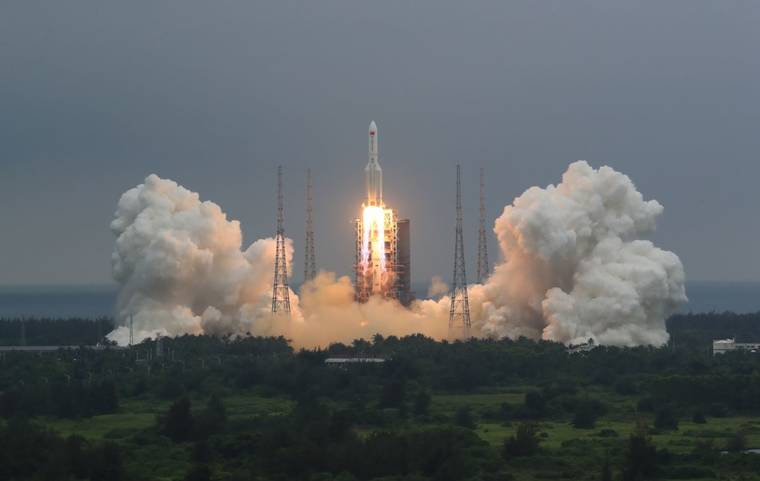A large segment of a Chinese rocket is expected to make an uncontrolled re-entry into the Earth’s atmosphere over the weekend, but Beijing has downplayed fears of damage on the ground and said the risk is minimal.
Africa Daily News recalls that a Long March-5B rocket launched the first module of China’s new space station into Earth’s orbit on April 29.
Its 18-tonne main segment is now in freefall and experts have said it is difficult to say precisely where and when it will re-enter the atmosphere.
Russian space agency Roscosmos predicted the rocket will re-enter after 2330 GMT Saturday south of Indonesia over the Timor Sea.
Read Also: China’s Xi Appeals For Fairer Governance From Global Leaders
The Pentagon gave a time of around 2300 GMT Saturday with a window of nine hours on either side.
Chinese authorities have said most of the rocket components will likely be destroyed as it descends.
‘The probability of causing harm… on the ground is extremely low,” Chinese foreign ministry spokesman Wang Wenbin told reporters yesterday.
Although there has been fevered speculation over exactly where the rocket — or parts of it — will land, there is a good chance any debris that does not burn up will just splash down into the ocean, given that the planet is 70 percent water.
‘We’re hopeful that it will land in a place where it won’t harm anyone,‘ said Pentagon spokesman Mike Howard.
Howard said the United States was tracking the rocket segment but ‘its exact entry point into the Earth’s atmosphere cannot be pinpointed until within hours of its re-entry’.
Defence Secretary Lloyd Austin earlier said the US military had no plans to shoot it down, and suggested that China had been negligent in letting it fall out of orbit.
‘Given the size of the object, there will necessarily be big pieces left over,’ said Florent Delefie, an astronomer at the Paris-PSL Observatory.
AFRICA DAILY NEWS, NEW YORK










